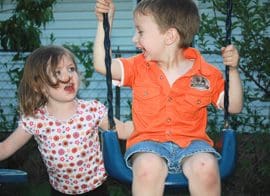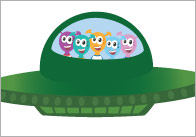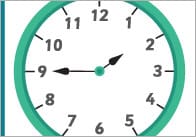Obesity: A Child’s Perspective

How young children see the world is a direct reflection of the views of adults and society as a whole, as this is who they have taken their cues from. Children learn by example, so if they learn that it is accepted to hold prejudices against people different from themselves then that is what they will believe is right. A recent study has shown that the nationwide prejudice of overweight people has filtered down through society into the next generation, leaving young children believing that if you are fat your chance of being successful and popular are considerably decreased (BBC, 2013).
The study, by the University of Liverpool, used a set of three identical stories about a cat stuck in a tree, each with a different version of the main character. The character, Alfie, was depicted in three different ways: as slim, overweight and in a wheelchair. Out of the 126 boys and girls aged between 4-7 only 1 in 4 children chose the overweight version of Alfie as a potential friend. They also said that he was less likely to do well at school, get invited to parties or to be happy with the way he looks (Daily Mail, 2013).
The version of Alfie in a wheelchair was also marked down on a variety of criteria, but far more of the children were interested in becoming his friend than with the overweight version of Alfie. An overwhelming number considered the slim version of Alfie to be the most popular and successful, and the majority of the children asked would consider him to be their friend.
The BBC reported that the lead researcher of the study, Professor Andrew Hill, said:
“Young kids like this are a social barometer. They are telling us that society is so conscious of body shape that even young children are able to mirror back what we say about obesity. We have a real habit of equating fatness with bad and children are reflecting this back to us. Parents and teachers should be aware of this” (BBC, 2013).
This study shows that society’s prejudice against overweight people is filtering down to our children. We need to teach our children to accept everyone, no matter who they are or what they look like, and to help them understand that everyone deserves to be treated the same. In order for this to happen, we need to address our own prejudices and set a positive example that they can follow.
Popular Teaching Resources
Stay Up To Date
Sign up for our newsletter and we’ll let you know when we create new early years resources.





